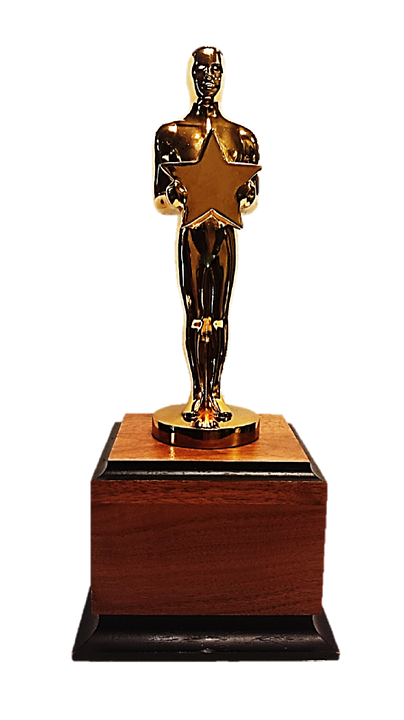Increase Sales: Sweet Sales and Profits from Value Based Sales
In my last post: The Oscar for Best B2B Sales Methodology goes to Value Based Sales I shared why a Value Based Sales method is by far the best B2B sales method. Over the last 34 years of solving sales problems I have observed sales teams using a variety of sales methods. In this post I will share how one team I served leveraged value based sales into sweet sales and profits and created a lifetime customer.
If value based sales produces more profitable sales faster why do so few salespeople use this sales method?
From what I have observed in the field on four legged sales calls coaching my sales teams the average B2B salesperson is much more comfortable discussing their products features and benefits than the customers’ market and business issues.
However when you ask buyers what they value and how salespeople can become more important they want B2B sales representatives discussing and sharing solutions that are relevant to their business.
According to SBI, on average 87% of the revenues in complex B2B sales environments are being generated by just 13% of the sales population.
Value based pricing adds value in B2B sales.
As Value Based sales thought leader Bob Apollo shares:
“This terrible mismatch has profound consequences. There’s abundant evidence to suggest that one of the most significant differences lies in their ability to systematically create unique value to their customers through the disciplined application of value-based selling techniques across their entire sales and marketing organization. And the results can be seen in top line revenue growth that far exceeds market averages.”
In 2000 I was asked to help a company Innis Maggiore. Back then they were called an advertising and marketing company. They had been my vendor partner for years. Today they have evolved into one of the top strategic positioning firms in North America. They wanted my help landing large accounts with the focus on creating lifetime customers.
The trouble is all large accounts have marketing departments who own strategy and already have relationships with advertising firms. What most business development salespeople do is try to wear down the buyers with features and benefits of their services, all the awards they have received and so on.
Our team created a list of large accounts that matched our ideal customer profile and one of those accounts was Harry London’s Chocolates just 4 miles from our corporate offices. Harry London’s Chocolates are a premium chocolate supplier and we wanted to serve their team because everything they did demonstrated a value for quality and providing their customers a strong buying experience.
We tried sending brochures and examples of our work. We called their marketing department with a regular cadence and dropped of creative demential mailers…nothing. We heard “ we are happy with what we have, and if we ever need your help we will call you.” (They even say no thanks in a quality way…we have to work with this company.)
What if we took a Value Based Sales approach?
We did market research into possible new markets for Harry London’s. Our firm had experience serving the floral industry for many years and about 30% of a florist’s revenue are non-flower product like vases, candles and even …chocolates. (Interesting)
We did more research and used our relationships in the floral industry and found:
Number of florists: about 33,000 retailers
Revenue of industry: $7 Billion
Approximately 30% of revenue not flowers: $2 Billion
Estimate of possible Chocolate sales: $750 Million
If we won just 10% of market share: $75 million in incremental sales
Estimated Gross Profit impact to Harry London: $25 Million
We interviewed three local florists on tape and asked them about their business, their challenges and how they increase sales and profits. Each business owner mentioned adding non-floral products to their services. We asked about chocolates and they all admitted they use chocolates as an added value offering to bouquets. (Back then the interviews where on VHS tapes and the cameras were so big we looked like a news crew). We asked what brand of chocolates they were using? None could share the brand. (sounds like an opportunity for a leader in quality chocolates to position themselves) We asked if they ever heard of Harry London’s chocolates and what that brand meant. They all shared yeas, and their perception was it was one of the top quality chocolate manufacturers, We asked if they thought using a premium brand chocolate supplier like Harry London’s would give them the opportunity to increase their selling price and increase their gross profits because their consumers would value this brand and each agreed it would.
I reached out to the CEO of Harry London’s chocolates.
First he received an amazing custom floral bouquet with his chocolates in the arrangements with a short note: “we found a sweet new profit opportunity for your company, I will be calling you this afternoon to discuss it. Mark Allen Roberts , Innis Maggiore”
That afternoon I called the CEO and my call went through to him. I asked for 20 minutes latter that week to share a new market opportunity, and I asked if we could have a TV and VHS player in the room and he agreed, …but just 20 minutes.
We started the meeting exactly on time and shared the size of the market opportunity and our estimates and some of his senior leaders baulked at our hypothesis. I remember sharing : “tell you what, lets say we are wrong, lets say we are off by as much as 20%…that would still be a huge amount of incremental revenue wouldn’t it?”
“Nothing speaks louder than the voice of customers”
- Mark Allen Roberts
About 10 minutes had passed and we could tell they were interested but skeptical.
You know that look like …if this was a good idea we would already be doing it …look?
We put in the VHS tape the player and you could have heard a pin drop.
The senior leaders were listening and watching florists share how they would value buying their high quality premium chocolates.
I looked at my watch, about 18 minutes had passed so I took out the tape when it was over, closed my portfolio and said: “we promised to only take 20 minutes, thank you for your time, and we would appreciate the opportunity to help your team add $20-$25 million in incremental profits in the floral market, a market our firm has served for over 20 years…” and I started to get up from the conference table.
Their CEO said: “where are you going?…please sit down lets discuss this more and tell me more about your company.”
After following up and some negotiating we won their business back in 2000 and even after they were acquired years later , Innis Maggiore still has their business in 2018. Why? Because when all the other ad firms (and there are many of them) came in talking about their company and all their awards and cutting their hourly rates, we came in and gave Harry London’s Chocolates a new business opportunity that would increase sales and ultimately add net income to their bottom line.
That was a Value Based Sales Approach.
Lets break it down to its key components:
- Determine your companies value drivers, how you create value for your customers’ businesses
- What possible new customers match your ideal customer profile
- Research the company
- Research their leaders
- Take time to understand their value proposition, brand and positioning
- Take time to understand the business of your customers’ business
- Know your customers’ markets
- Create a challenge, a hypothesis, a way to create value for them
- Present the hypothesis in the language of business
- Build trust in every aspect of communication
- Follow up
- Negotiate after you establish value
- Close with clear next steps
- Follow up and verify the value created
- Ask for another opportunity to create value
How do your salespeople sell today?
Why do you win sales?
Why do you loose sales?
Does your team use a value-based model?
Why wouldn’t a value-based sales model work for your salespeople?
That CEO is now the CEO of a custom candle company. Maybe my old team at Innis Maggiore needs to send another custom floral bouquet with a candle made from bees wax?
Like I shared in posts about the value of doing voice of the customer work in a number of posts sharing examples, I will share other value based sales examples in the next few posts so stay tuned.



